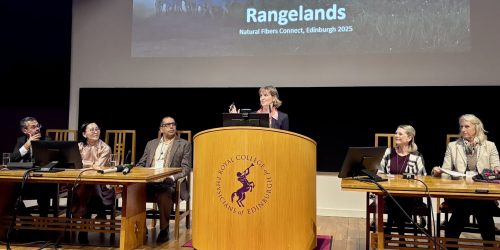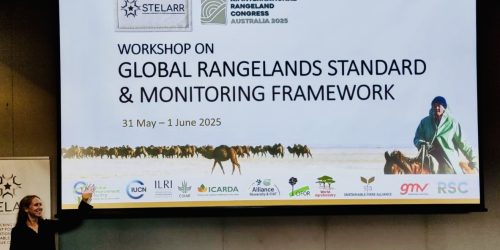On 21 March 2024, the Rangeland Stewardship Council (RSC) held a significant Roundtable Consultation in London, bringing together private sector stakeholders to discuss rangeland management. This event, supported by the STELARR (Sustainable Investments for Large-Scale Rangeland Restoration) Project, aimed to deepen understanding and promote investment in sustainable rangeland practices.
The consultation had three main objectives: to assess the private sector’s awareness of rangeland stewardship, particularly in the natural fibres industry; to identify key challenges and recommendations related to stewardship, regenerative agriculture, animal welfare, and commodity standards; and to gather insights to help shape a global rangeland standard aligned with environmental goals.
The discussions were organised around four key themes. The first, rangeland stewardship, emphasised the importance of these practices in the natural fibres sector. Participants explored the challenges of adopting regenerative agriculture and the need for clear accountability in addressing land degradation. A recurring topic was the establishment of incentive structures, like carbon credit schemes, to encourage private sector commitment to sustainable rangeland management.
The second theme, animal welfare, highlighted growing consumer demand for ethical practices, especially within luxury brands. Participants noted that while consumer sentiment drives brand strategies, there is often a gap in public awareness of certifications and standards. Ensuring traceability and transparency in animal welfare emerged as essential for maintaining consumer trust.
The third theme focused on commodity standards, where participants examined existing frameworks and the diverse range of rangeland products, from animal fibres to energy and minerals. The discussions emphasised the need for comprehensive standards that address gender equality, environmental protection, and sustainable transportation. Participants also stressed the importance of establishing robust chain-of-custody protocols to ensure transparency and prevent fraud in the supply chain.
The fourth theme, monitoring, evaluation, and learning (MEL) addressed the challenges of monitoring sustainability. Participants highlighted the need for standardised terminology and consistent compliance controls across regions. Recommendations included developing a unified global standard, investing in data collection and analysis tools, and implementing supply chain visibility mapping to enhance sustainability efforts.
The roundtable consultation provided valuable insights into the complexities of rangeland management and the steps needed to promote sustainable practices. Key findings included the need for interdisciplinary collaboration and stakeholder engagement, with a focus on developing strong governance frameworks to enhance resilience and sustainability. In terms of animal welfare, addressing consumer expectations and ensuring traceability within the supply chain were identified as critical for maintaining brand reputation and consumer trust. The creation of a comprehensive standard addressing environmental, social, and economic considerations was seen as essential for promoting sustainability in rangeland commodities.
By fostering dialogue and collaboration among industry stakeholders, the consultation laid the groundwork for developing a Global Rangelands Standard that promotes environmental sustainability while aligning with broader global objectives. We invite you to access the full summary report, which offers detailed insights and actionable recommendations to help drive forward sustainable practices in rangeland management.





